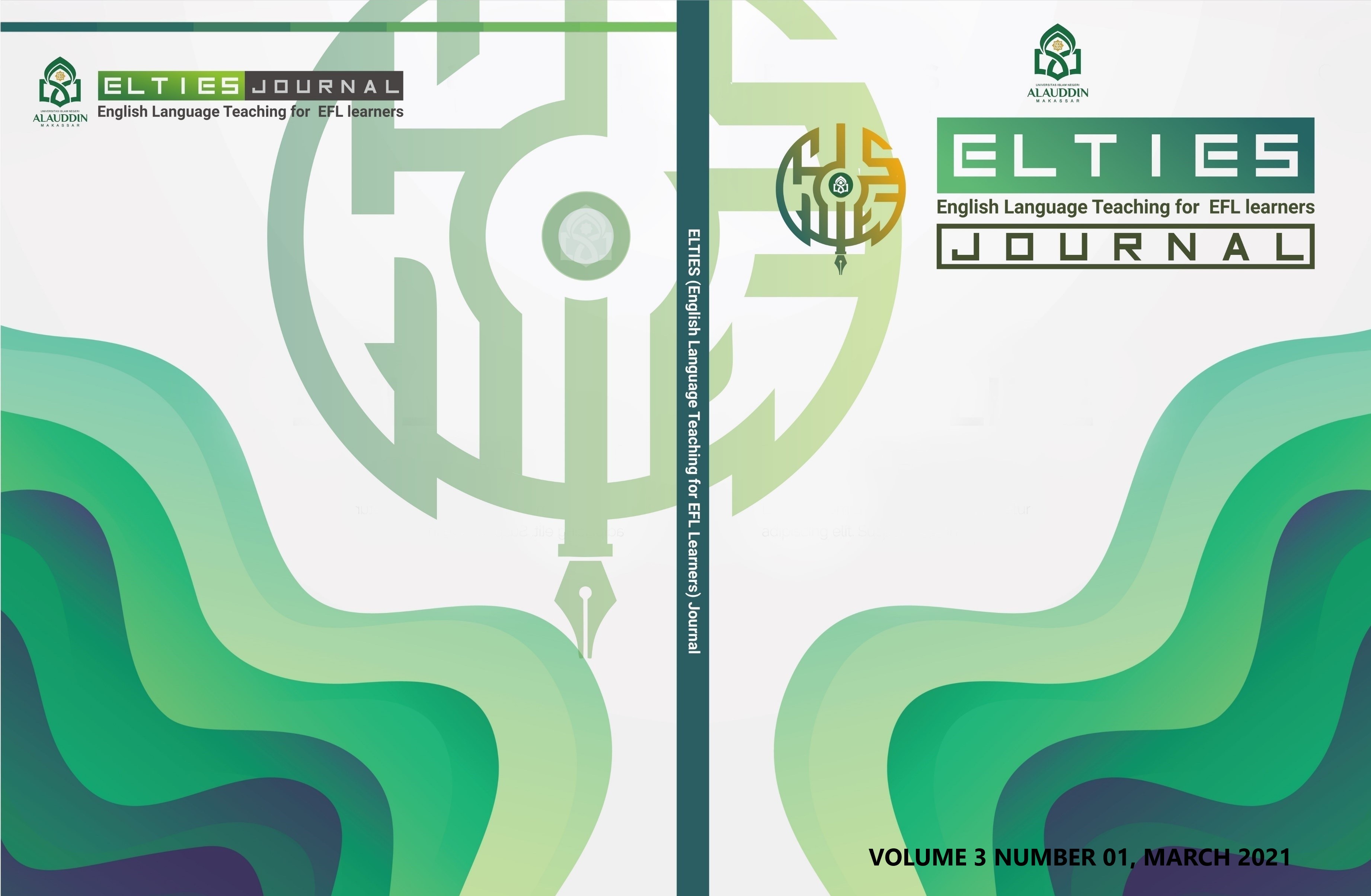EFL TEACHERS’ AND LEARNERS’ PERCEPTION OF NEGOTIATED SYLLABUS: AN EFFECTIVE WAY OF IMPROVING SPEAKING ABILITY
Abstract
The appropriateness of learning material for learners’ interests and professions is highly important. The more relevant learning materials and learners’ interests, the easier it is for them to participate in a conversation. This research aimed to investigate the EFL teachers’ and learners’ perception of the negotiated syllabus and the improvement of learners’ English speaking ability. This research employed a descriptive qualitative research method in which data collected through documents and in-depth interviews. The subject of this research consisted of five EFL teachers and ten EFL learners. The qualitative results showed both teachers and learners giving positive responses in learning speaking English through the negotiated syllabus. In addition to learners’ responses, the negotiated syllabus has facilitated the learners in improving their English speaking ability to be taught based on their needs and wants. On the other hand, vocabulary and comprehension, the speaking skills elements, were improved more than other speaking skill elements.References
Abbasian, G. R. & Hendi, N. S. (2011). The Effect of Explicit Negotiated Syllabus on Developing Speaking Ability and Affective Variables. Journal of Language and Translation, 7(1), 19-27.
Allen & Unwin, 1993. Curriculum Development and Design. (2nd ed). Australia: Murray Print.
Boomer, G. (1992). Negotiating the Curriculum: Educating for the 21st Century. London: Falmer.
Breen, M. P. and Littlejohn, A. (2000). Classroom Decision-Making. Cambridge: Cambridge University Press.
Creswell, J. W. (2012). Educational Research: Planning, Conducting, and Evaluating Quantitative and Qualitative Research. Boston: Pearson Education, Inc.
Nation, I.S.P. and Macalister, J. (2010). Language Curriculum Design. New York: Routledge.
Nunan, D. (1988). Syllabus Design. New York: Oxford University Press
Haris. D. P. (1974). Testing English as a Second Language. New York: McGraw Book Company.
Hornby. (1995). Definition of Speaking Skill. New York: publisher.
Miles, M. B. and Huberman, A.M. (1994). Qualitative Data Analysis (2nd ed.). London: SAGE Publications Ltd.
Hughes, A. (2003). Testing for Language Teachers. (2nd ed). Cambridge: Cambridge University Press.
Patton, M. Q. (2002). Qualitative Research & Evaluation Methods (3rd ed). London: Sage Publications, Inc.
Richard, J. C. (2001). Curriculum Development in Language Teaching. Cambridge: Cambridge University Press.
Richard, J. C. & Schmidt, R. (2002). Longman Dcitionary of Language Teaching & Applied Linguistics. (3rd ed.). London: Person Education Limited.
Ur, P. (1991). A Course in Language Teaching: Practice and Theory. Cambridge: Cambridge University Press.

